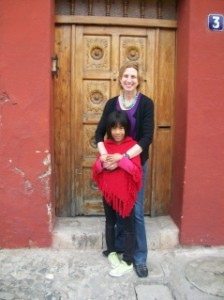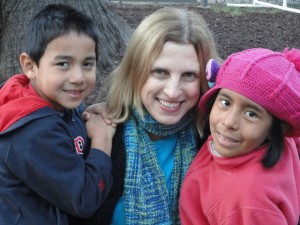It’s an accident of fate that I fell in love with a man who happens to live in one the most active literary communities in the United States. Marin County is home to countless book clubs, writing groups, and bookstores, as well as innumerable workshops and classes in the art and craft of writing. Every night of the week, you could attend a reading or book launch somewhere in Marin, if only you had more time.
This week, my local independent newspaper, the Pacific Sun, published a round-up of books by Marin authors, and, I’m proud to report, included Mamalita. Read the article here, or if you’re local, pick up your free copy at newsstands now. Here’s a short excerpt, written by Dani Burlson:
Revealing the often corrupt and nerve-racking challenges of international adoption, O’Dwyer carries readers through wild goose chases, misdirections and endless ups and downs—at times Mamalita reads more like an action-adventure travel memoir, making it difficult to put down.
Despite the prevalent theme of adoption and the subsequent nightmare that O’Dwyer and her husband lived through for nearly two years, Mamalita is, more than anything else, the story of a personal and transformative journey. O’Dwyer is introduced to her own strength, the power and importance of community and the bottomless reservoir of love that parents hold for their children. Witnessing her vigor unfolding with the turn of each page keeps the reader cheering her on from the sidelines. Her love, courage and dedication is heroic, but not all that surprising. After all, she’s a mother.
The same article also features the third volume of the West Marin Review, published through a collaboration among the Tomales Bay Library Association, Point Reyes Books, and volunteers. The final chapter of Mamalita, “Meeting Ana,” is included in the issue. The West Marin Review will host a launch party on Sunday, January 23 from 1 to 4 p.m. at the Red Barn in Point Reyes. Check the WMR website for details.
A few weeks ago, author, speaker, and radio host Patricia V. Davis interviewed Cathy Edgett and me for her Harlots’ Sauce Radio. Cathy spoke about her memoir, Breast Strokes: Two Friends Journal through the Unexpected Gift of Cancer, while I discussed adoption from Guatemala in Mamalita. Patricia asked excellent and probing questions. Hope you will give the podcast a listen.
Recently I received this announcement from an organization called Moms4FamilyTV, whose stated goal is to “promote high-quality family friendly entertainment that the entire family can watch together.” The initiative is sponsored by Walmart and P&G. The next film, Change of Plans, airs tonight, January 8th 8/7c on FOX. I haven’t had a chance to preview it, but here’s the description:
This heart-warming, funny film surrounds a married couple with no kids, who–through unfortunate events –ends up adopting four kids from Africa, Asia, and South America. The film reveals how fulfilling life can be when you look beyond your own plans and invest in the lives of others. The film is also very pro-adoption!
Airs tonight, January 8th at 8/7c on FOX. Watch the trailer here.
Today, I’m en route to New Mexico for two readings in the Mamalita Book Tour. My friend Bethany is there, and I’ll get to meet in person Kim Lopez, who performed the necessary and laborious task of correcting my Spanish in the final edit of Mamalita. (Thank you, Kim!) My plan is also to connect with some adoptive families who live in Santa Fe and Albuquerque.
Here are the venues–Looking forward to it!
Sunday, January 9, 2011 at 2 p.m
Collected Works Bookstore
202 Galisteo Street
Santa Fe, NM 87501
505-988-4226
Tuesday, January 11, 2011, at 7 p.m.
Bookworks
4022 Rio Grande Boulevard NW
Albuquerque, NM 87107
505-344-8139


 ShareThis
ShareThis







 ShareThis
ShareThis


